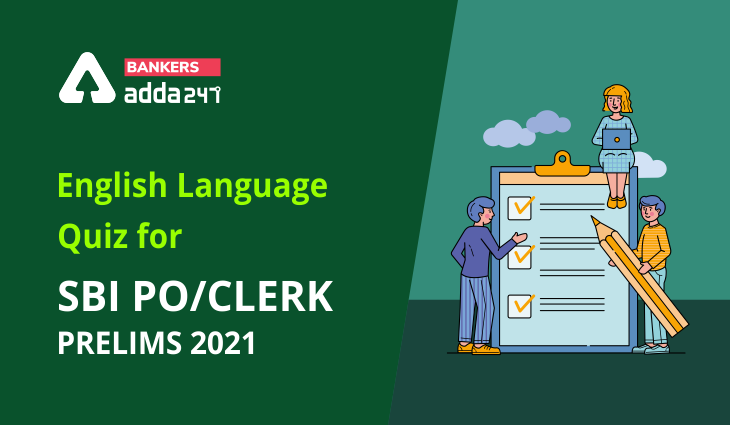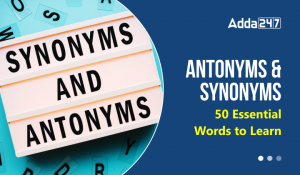
Directions (1-5) : Which of the phrases (a), (b), (c) and (d) given below each sentence
should replace the phrase printed in bold type to make the sentence
grammatically correct If the sentence is correct as it is, mark (e) as the
answer.
Q1. Modern industrialised
communities have lost touch with the soil and do not experience that joy which
nature gives and the rich glow of health that
which comes from contact with mother earth.
(a)
which comes from contact with
(b)
which comes out from contact with
(c)
which flows how from contact with
(d)
that which come out contact with
(e)
No improvement
Q2. In India today, many of our
intellectuals still talk in terms of the French Revolution and the Rights of
Man, not appreciating that much has
happened since then.
(a)
much might happen
(b)
much had happened
(c)
much has been happening
(d)
much could happen
(e)
No improvement
Q3. He has been receiving no
other message than an urgent telegram asking
him to rush his village immediately.
(a)
asking him rushing at his village
(b)
asked him to rush his village
(c)
asking him to rush to his village
(d)
asking him for rushing to his village
(e)
No improvement
Q4. Every human advance carries
with it not only automatic benefits but also a new responsibility, and we must remain constantly aware for the
dangers that lie in the possible misuse of our enormous skills.
(a)
we must remain constantly aware about
(b)
we must remain constantly aware of
(c)
we must remain constantly aware to
(d)
we must remain constantly aware from
(e)
No improvement
Q5. Asking me why was I absent, I was punished by the
headmaster.
(a)
why was I absent, was I punished by the Headmaster
(b)
why I was absent, was I punished by the Headmaster
(c)
why I was absent, the headmaster punished me
(d)
was I absent, I was punished by the headmaster
(e)
No improvement
Directions (6-10): Read each sentence to find out whether
there is any grammatical or idiomatic error in it. The error, if any, will be
in one part of the sentence. The number of that part is the answer. If there is
‘No error’, the answer is e). (Ignore errors of punctuation, if any.)
Q6. (a) / One of
the major problems with (b) / representative democracy is that (c) / the
business of government has (d) /
become the privilege of few. (e) No error
Q7. (a) / Whether
or not there exists a standard definition of the term globalization, (b) / there is broad agreement with the fact that
(c) / the process of globalization has had and continues to have (d) / profound
impact on various aspects of human life. (e) No error
Q8. (a) / If two types of economy exists
in the country (b) / either there should be conflict (c) / between the two or
(d) / one will overwhelm the other. (e) No error
Q9. (a) / India is
the second most populous (b) / country in the world (c) / and is expected to (d) / take over China by 2030. (e)
No error
Q10. (a) /Although the mission to
Mars had been mentioned of and on by ISRO officials since 2007 (b) / and
studies within ISRO for such a possible mission seem to have begun (c) / around
that time, it had never been projected (d) / as a definitive planetary mission
in the short term. (e) No error
Directions (11-15):
In the following passage there are blanks each of which has been numbered.
These numbers are printed below the passage and against each five words have
been suggested, one of which fills the blanks appropriately. Find out the
appropriate word in each case.
A decade ago, a financial crisis (11) Bangkok. During the next fifteen
months it swept through Jakarta, Kuala Lumpur, Hong Kong and Seoul. As Asian
countries borrowed and spent beyond their means (12) of thousands lost their jobs. Abandoned half-built buildings
throughout Asian cities (13) as
reminders of the shattered hopes not only of distinguished entrepreneurs but
also ordinary workers. Asia has come a long way during the past ten years—vast
economic imbalances no longer (14).
However, market crashes are possible even today and Asia’s best insurance
policy to (15) with any future
crises is to build resilient financial systems.
Q11. (a)
occurred
(b) hit
(c) striking
(d) fuelled
(e) suffered
Q12. (a) tens
(b) few
(c) approximate
(d) several
(e) lives
Q13. (a) seen
(b) pointed
(c) showed
(d) stood
(e) forgotten
Q14. (a) seen
(b) valid
(c) exist
(d) present
(e) there
Q15. (a) cope
(b) combat
(c) justify
(d) avert
(e) accommodate
Directions (16-20): Each question below has one or more blanks,
each blank indicating that something has been omitted. Choose the words for
each blank that best fits the meaning of the sentence as a whole.
Q16. Turkey widened its massive post-coup …………….. to
the state education sector after …………….. to root out supporters of an exiled
cleric it accuses of orchestrating the attempted power grab.
(a)Deposition, committing
(b)Revamping, vowing
(c)purge, vowing
(d)Eradication, claiming
(e)Reckoning, pledging
Q17. Manipur ……………… the erratic weather conditions and
…………………… experienced by the inhabitants of the Sunderbans due to tidal
movements.
(a) embodies, impediments
(b)Exemplifies, vulnerabilities
(c) Demonstrate, difficulties
(d)Epitomizes, complications
(e) Symbolize, encumbrance
Q18. It is …………………. to halt its further expansion
because this is not just another ……………… government.
(a) Imperative, bourgeois
(b) Indispensable, arbitrary
(c) Arbitrary, conservative
(d) Necessary, Comprehensive
(e) Eminent, liberal
Q19. The ultimate …………………..of who is or is not in the
Gulen movement will be left to Mr. Erdogan’s own loyalists, who are likely to
remove those who have long resisted the President’s own bid to ………………. power.
(a) part, consolidate
(b) Resposibility, augment
(c) Decision, consolidate
(d) arbiter, monopolise
(e) Resolution, amass
Q20. The ……………………… of reservoir is more than 80 per
cent where as the total catchment area treatment (CAT) work carried out by
three ………………States is reported to be 45 per cent
(a) Emancipation, affiliated
(b) Renouncement, mentioned
(c) concentration, selected
(d) Expropriation, other
(e) Impoundment, concerned
SOLUTIONS:
S1. Ans. (a)
Sol. ‘That’ and ‘which’ are not used together
when they mean the same.
S2. Ans. (e)
Sol. No improvement.
S3. Ans. (c)
Sol. The verb ‘rush’ takes ‘to’ after it.
S4. Ans. (b)
Sol. The correct preposition to follow aware is
‘of’.
S5. Ans. (c)
Sol. Subject-verb inversion
occurs only in interrogatives; here, there is a statement form of sentence.
S6. Ans. (d)
Sol. Add ‘the’ before ‘few’
S7. Ans. (e)
Sol. No error
S8. Ans. (a)
Sol. Replace ‘exists’ with ‘exist’
S9.Ans. (d)
Sol. Replace ‘take over’ with ‘overtake’
S10. Ans. (a)
Sol. Replace ‘of’ with ‘off’
S11. Ans. (b)
S12. Ans. (a)
S13. Ans. (d)
S14. Ans. (c)
S15 Ans. (a)
S16.
Ans. (c);
Sol.
‘purge, vowing’ is the correct use.
Purge -to cleanse
Vowing -a solemn promise
S17.
Ans. (b)
Sol.
‘Exemplifies, vulnerabilities’ is the correct use.
Exemplify-be a typical example of.
Vulnerabilities-shortcomings.
S18.
Ans. (a);
Sol.
‘Imperative, bourgeois’ is the correct use.
Imperative means crucial.
Bourgeois means belonging to or characteristic of the middle
class, typically with reference to its
perceived materialistic values or conventional attitudes.
S19.
Ans. (d)
Sol.
‘arbiter, monopolise’ is the correct use.
Arbiter means a person who settles
a dispute or has ultimate authority in a matter.
Monopolise means (of an
organization or group) obtain exclusive possession or control of (a trade, commodity, or
service).
S20.
Ans. (e)
Sol.
‘Impoundment, concerned’ is the correct use.
Impound means seize and take legal
custody of (something, especially a vehicle, goods, or documents) because of an
infringement of a law.
Concerned means relate to in
context of this sentence.



 English Language Notes for Competitive E...
English Language Notes for Competitive E...










